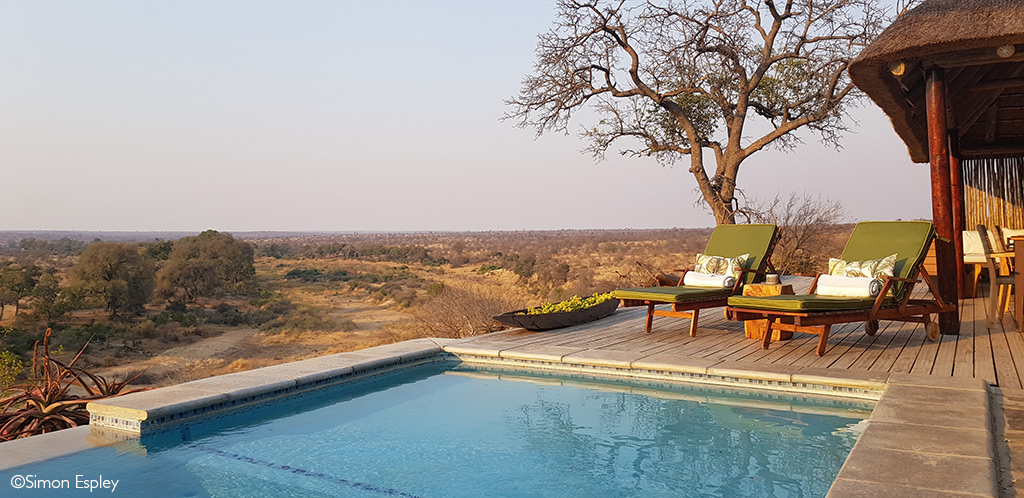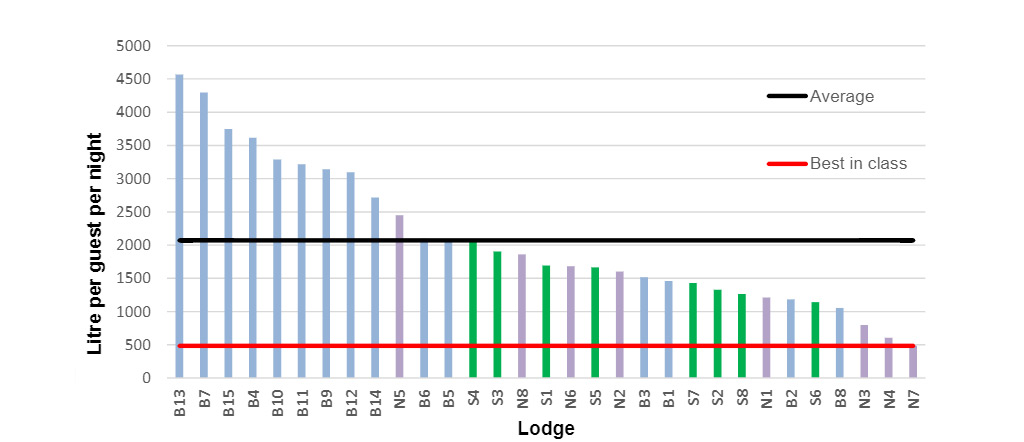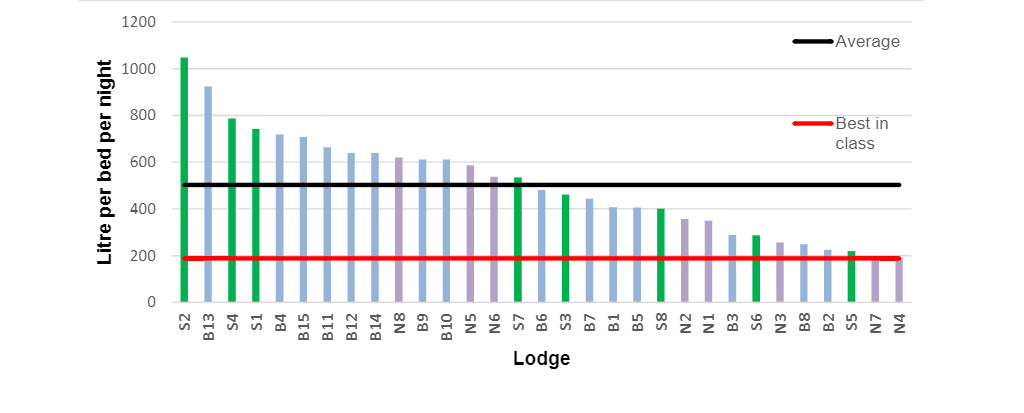This is one example, Satara trough has been overflowing on and off for months now:
Water Wastage/Problems in Kruger
- Richprins
- Committee Member
- Posts: 76262
- Joined: Sat May 19, 2012 3:52 pm
- Location: NELSPRUIT
- Contact:
Water Wastage/Problems in Kruger
Please check Needs Attention pre-booking: https://africawild-forum.com/viewtopic.php?f=322&t=596
- Lisbeth
- Site Admin
- Posts: 67810
- Joined: Sat May 19, 2012 12:31 pm
- Country: Switzerland
- Location: Lugano
- Contact:
Re: Water Wastage in Camps
Isn't it because of the rain 
"Education is the most powerful weapon which you can use to change the world." Nelson Mandela
The desire for equality must never exceed the demands of knowledge
The desire for equality must never exceed the demands of knowledge
- Richprins
- Committee Member
- Posts: 76262
- Joined: Sat May 19, 2012 3:52 pm
- Location: NELSPRUIT
- Contact:
Re: Water Wastage in Camps
No, not at all! 
Please check Needs Attention pre-booking: https://africawild-forum.com/viewtopic.php?f=322&t=596
- Lisbeth
- Site Admin
- Posts: 67810
- Joined: Sat May 19, 2012 12:31 pm
- Country: Switzerland
- Location: Lugano
- Contact:
Re: Water Wastage in Camps
Then it's bad 
"Education is the most powerful weapon which you can use to change the world." Nelson Mandela
The desire for equality must never exceed the demands of knowledge
The desire for equality must never exceed the demands of knowledge
- Lisbeth
- Site Admin
- Posts: 67810
- Joined: Sat May 19, 2012 12:31 pm
- Country: Switzerland
- Location: Lugano
- Contact:
Re: Water Wastage/Problems in Kruger
The following is not Kruger related, but the problem is the same.
How much water should lodges be using?
Posted on October 5, 2020 by Team Africa Geographic in the DECODING SCIENCE post series.

Picture the typical lodge scene: a sparkling pool surrounded by lush gardens, overlooking a dry riverbed. Behind the scenes, the housekeeping staff are working their way through the laundry, cleaning linen and towels for a fresh contingent of guests, while the trackers and guides are hard at work cleaning the dust and dirt from the safari vehicles. Lodges are entirely dependent on a constant supply of water, which, given their rural locations, is usually sourced from rivers, dams and boreholes that tap into the underground water supply.
The wildlife tourism industry is a significant income generator in southern Africa and supports the livelihoods of many individuals in rural communities. Yet in an area where water resources are scarce, how much water are the lodges in southern Africa using, how much should they be using and how does this compare to the consumption of surrounding communities? These are the questions that researchers from the Department of Environmental Sciences at the University of South Africa set out to answer in a new study that analyses the water quantity used at 31 wildlife lodges in South Africa, Botswana and Namibia and provides a baseline and water usage benchmark for the wildlife lodge industry in southern Africa.
There are existing international guidelines for sustainable water use and consumptive quantities in the tourism industry, but these cannot be applied to the wildlife lodge industry for one fundamental reason: most employees at a lodge reside on the premises, rather than returning home every day. Creating a baseline for lodges would need to consider daily staff water usage as well.

Litres per guest per night
The researchers partnered with andBeyond and Wilderness Safaris, two companies with multiple lodges across South Africa, Namibia, and Botswana, for assistance in their research. Lodges with a variety of locations and geography (from desert to permanent swampland) were selected, and these were allocated codes to ensure anonymity. The majority of the lodges had complete water consumption records, and the study utilizes data from March 2015 until February 2017.
The researchers focussed on direct water usage, which includes all water used for bathing, gardening, laundry, cleaning, wash bays, kitchens, swimming pools and staff quarters. They used the international standard of measurement – litres per guest per night – for measurement purposes. The average water consumption across the three countries was calculated at 2,073 litres per guest per night – an amount which is exceedingly large when compared to international 5-star hotels, in some cases up to three to four times higher than the average tourism water consumption in some countries. However, in modifying these calculations to include staff numbers and their water usage, this number dropped to 503 litres per bed per night, which compares more favourably to international averages*. The water consumption by lodges was significantly higher in Botswana, while Namibia typically showed the lowest consumption levels.
* Editorial note: A certain amount of water usage will be ‘fixed’ – in other words, not materially variable based on the number of beds or by how many guests visit the camp. These include water used by core staff, the swimming pool and garden. Comparing international 5-star hotels to lodges is therefore not practical because hotels usually have more available bednights and higher occupancies – with the fixed water usage quantity, therefore, being divided by a higher figure to get to a lower average.
The study concludes by proposing the use of these averages (2,073 litres per guest per night or 503 litres per bed per night) as a benchmark for how wildlife lodges in Southern Africa should plan to manage their water consumption. These proposed benchmarks would be the first of their kind in Southern Africa to aid lodges in setting targets for water usage, as well as assisting developers in planning future lodges, but the authors suggest that these numbers would need to be reviewed regularly in the future.

Litres per bed per night
While at this stage there is no governmental oversight or regulation of water usage, it is incumbent on the wildlife lodge industry in southern Africa to ensure that the lodge water consumption is sustainable to avoid disadvantaging both surrounding wildlife and local communities. Most lodges are mindful of this fact and encourage both guests and staff to conserve water but investing in water-saving measures can be costly. However, for comparison purposes, the water consumption of surrounding local communities ranged from an average of 88 to 371 litres per person per day. In setting a standard which takes into account the unique southern African lodge circumstances, this study offers a realistic starting point for lodges looking to improve or maintain their approach to water consumption.
The full study can be accessed here: “Water management in the wildlife lodge industry: A southern African perspective”, Grobler, J., Mearns, K., (2020), Second Annual Conference of the International Geographical Union Commission on African Studies
How much water should lodges be using?
Posted on October 5, 2020 by Team Africa Geographic in the DECODING SCIENCE post series.

Picture the typical lodge scene: a sparkling pool surrounded by lush gardens, overlooking a dry riverbed. Behind the scenes, the housekeeping staff are working their way through the laundry, cleaning linen and towels for a fresh contingent of guests, while the trackers and guides are hard at work cleaning the dust and dirt from the safari vehicles. Lodges are entirely dependent on a constant supply of water, which, given their rural locations, is usually sourced from rivers, dams and boreholes that tap into the underground water supply.
The wildlife tourism industry is a significant income generator in southern Africa and supports the livelihoods of many individuals in rural communities. Yet in an area where water resources are scarce, how much water are the lodges in southern Africa using, how much should they be using and how does this compare to the consumption of surrounding communities? These are the questions that researchers from the Department of Environmental Sciences at the University of South Africa set out to answer in a new study that analyses the water quantity used at 31 wildlife lodges in South Africa, Botswana and Namibia and provides a baseline and water usage benchmark for the wildlife lodge industry in southern Africa.
There are existing international guidelines for sustainable water use and consumptive quantities in the tourism industry, but these cannot be applied to the wildlife lodge industry for one fundamental reason: most employees at a lodge reside on the premises, rather than returning home every day. Creating a baseline for lodges would need to consider daily staff water usage as well.

Litres per guest per night
The researchers partnered with andBeyond and Wilderness Safaris, two companies with multiple lodges across South Africa, Namibia, and Botswana, for assistance in their research. Lodges with a variety of locations and geography (from desert to permanent swampland) were selected, and these were allocated codes to ensure anonymity. The majority of the lodges had complete water consumption records, and the study utilizes data from March 2015 until February 2017.
The researchers focussed on direct water usage, which includes all water used for bathing, gardening, laundry, cleaning, wash bays, kitchens, swimming pools and staff quarters. They used the international standard of measurement – litres per guest per night – for measurement purposes. The average water consumption across the three countries was calculated at 2,073 litres per guest per night – an amount which is exceedingly large when compared to international 5-star hotels, in some cases up to three to four times higher than the average tourism water consumption in some countries. However, in modifying these calculations to include staff numbers and their water usage, this number dropped to 503 litres per bed per night, which compares more favourably to international averages*. The water consumption by lodges was significantly higher in Botswana, while Namibia typically showed the lowest consumption levels.
* Editorial note: A certain amount of water usage will be ‘fixed’ – in other words, not materially variable based on the number of beds or by how many guests visit the camp. These include water used by core staff, the swimming pool and garden. Comparing international 5-star hotels to lodges is therefore not practical because hotels usually have more available bednights and higher occupancies – with the fixed water usage quantity, therefore, being divided by a higher figure to get to a lower average.
The study concludes by proposing the use of these averages (2,073 litres per guest per night or 503 litres per bed per night) as a benchmark for how wildlife lodges in Southern Africa should plan to manage their water consumption. These proposed benchmarks would be the first of their kind in Southern Africa to aid lodges in setting targets for water usage, as well as assisting developers in planning future lodges, but the authors suggest that these numbers would need to be reviewed regularly in the future.

Litres per bed per night
While at this stage there is no governmental oversight or regulation of water usage, it is incumbent on the wildlife lodge industry in southern Africa to ensure that the lodge water consumption is sustainable to avoid disadvantaging both surrounding wildlife and local communities. Most lodges are mindful of this fact and encourage both guests and staff to conserve water but investing in water-saving measures can be costly. However, for comparison purposes, the water consumption of surrounding local communities ranged from an average of 88 to 371 litres per person per day. In setting a standard which takes into account the unique southern African lodge circumstances, this study offers a realistic starting point for lodges looking to improve or maintain their approach to water consumption.
The full study can be accessed here: “Water management in the wildlife lodge industry: A southern African perspective”, Grobler, J., Mearns, K., (2020), Second Annual Conference of the International Geographical Union Commission on African Studies
"Education is the most powerful weapon which you can use to change the world." Nelson Mandela
The desire for equality must never exceed the demands of knowledge
The desire for equality must never exceed the demands of knowledge
-
Klipspringer
- Global Moderator
- Posts: 5862
- Joined: Sat Sep 14, 2013 12:34 pm
- Country: Germany
- Contact:
Re: Water Wastage/Problems in Kruger
Where water is a problem, do away with green lawns and flower beds and have a natural camp such as Mopani!
But birders will moan
But birders will moan


